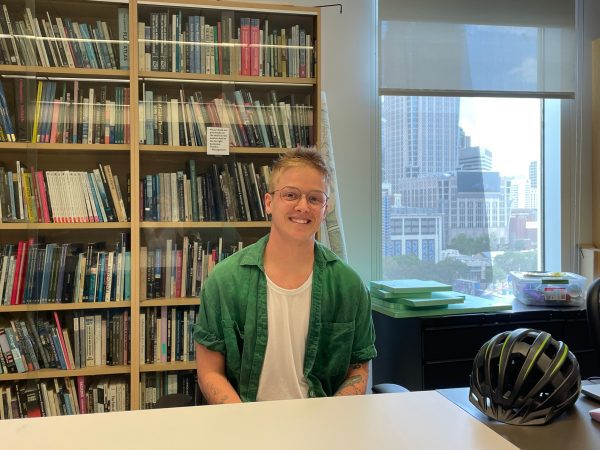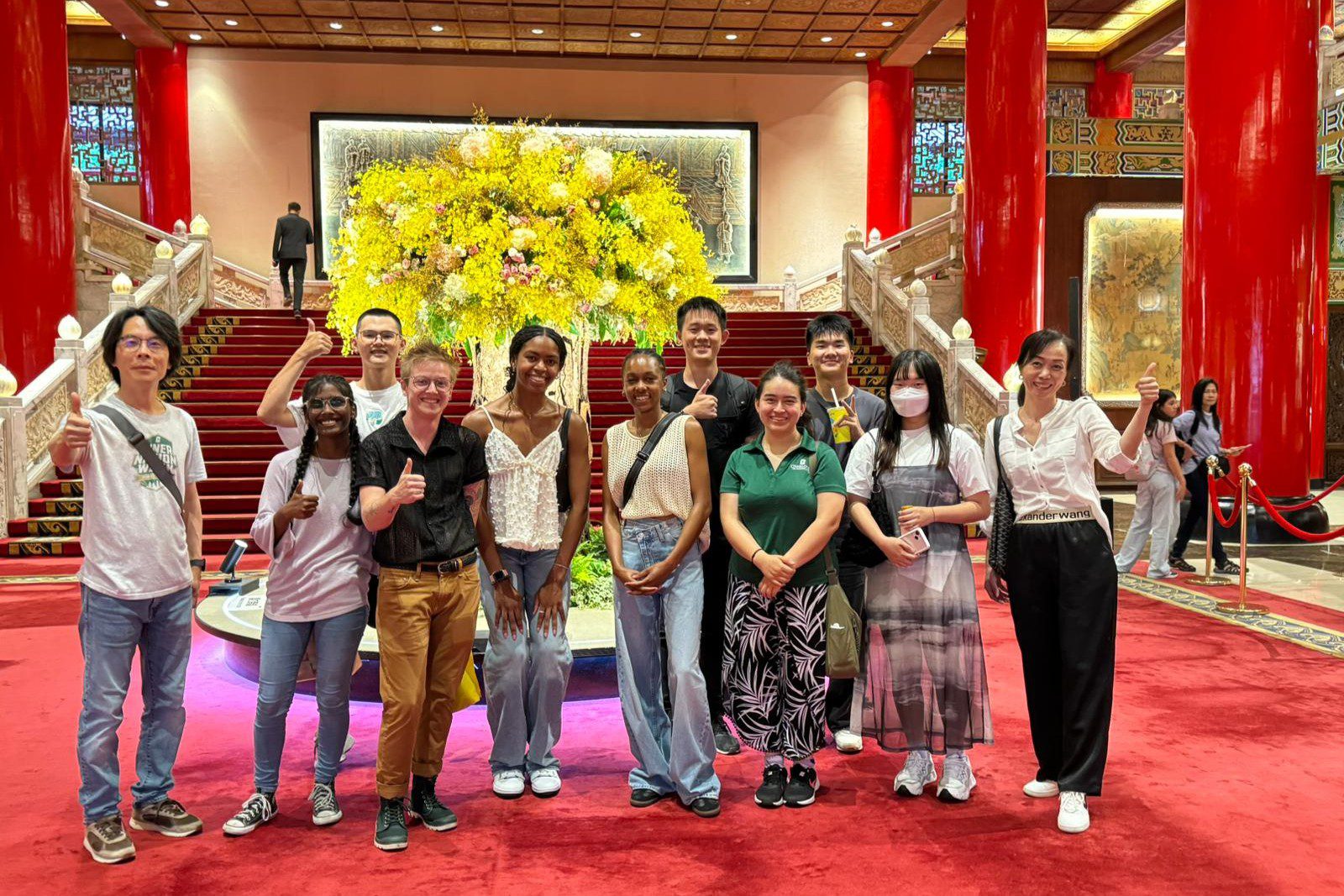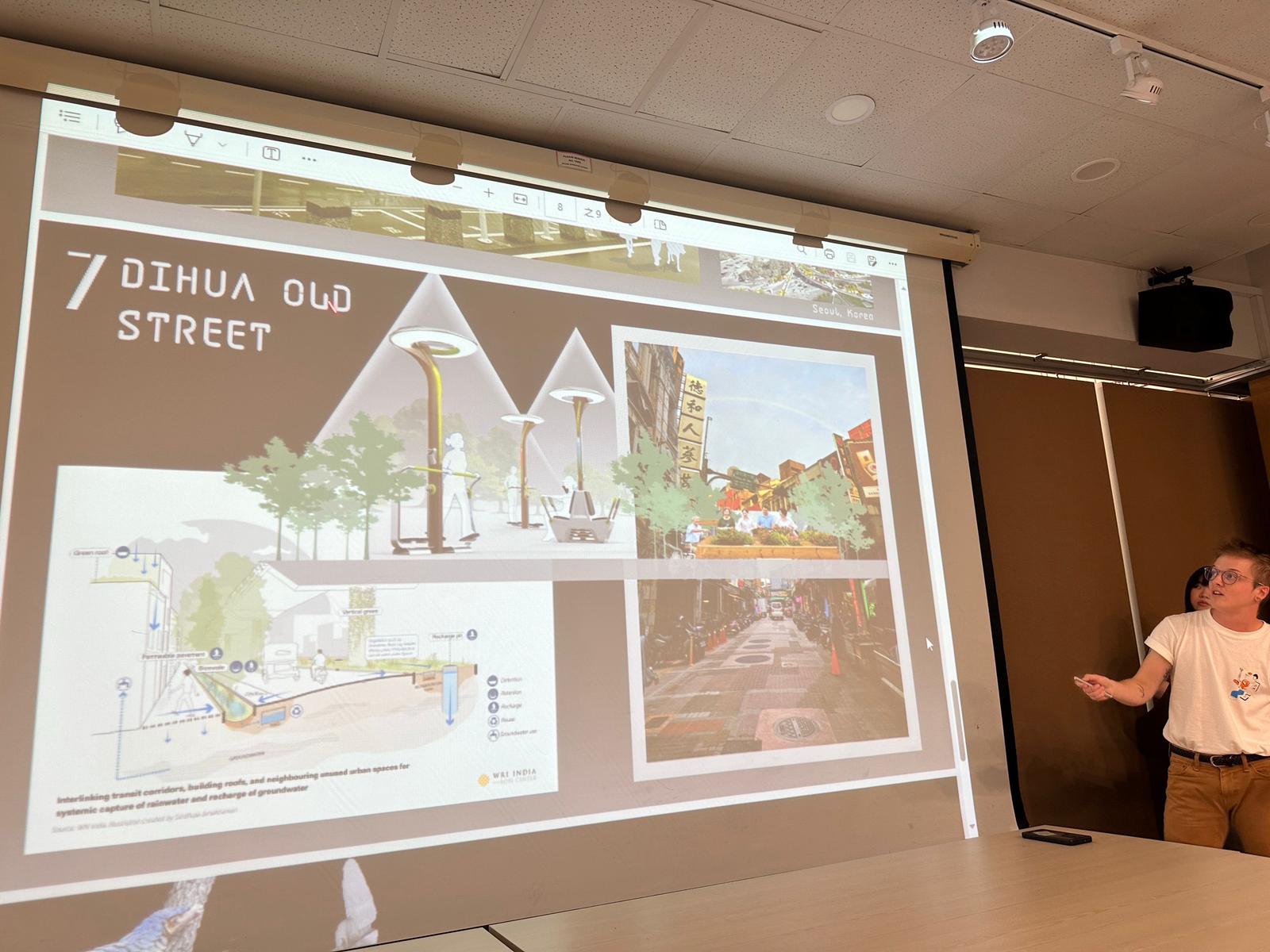MUD Graduate Is Ready to Address Urban Challenges through Design

In the five years between his graduation from Appalachian State University, where he earned a degree in sustainable development, and his enrollment in UNC Charlotte’s Master of Urban Design program, Aspen Johnston explored a wide range of jobs.
Living in Asheville, he was a sales representative for a beverage company, then worked as a landscaper (his degree had an agroecology concentration). Later, he drew upon dual interests in art and science to teach young children in programs at Roots + Wings School of Art and Design and the Asheville Art Museum.
“That started building all the blocks that led me here,” he said recently, as he was completing final tasks before graduating on August 9. “I started seeing that all the biases we see in this world, kids that age don’t see it. There are so many things we could change if we addressed them at the root.”
A couple of years ago, Johnston began to consider graduate school.
“I looked at urban planning, art therapy (he had been volunteering with an art program for people experiencing homelessness), and then I discovered urban design. I realized that urban design made more sense for me. I’ve always been a big picture thinker. If I become an urban designer, hopefully I can help shape a world that better addresses the conditions – housing insecurity, disconnected communities, mental health challenges, inequality – that lead people to seek out art therapy programs.”
The David R. Ravin School of Architecture’s Master of Urban Design (MUD) degree certainly trains students to look at the big picture. The rigorous 12-month curriculum draws from the disciplines of architecture and landscape architecture, urban planning, real estate development, and data analytics to prepare students to work in the public or private sector to make towns and cities more livable. It is the only graduate degree program in urban design in North Carolina.
“You really do hit the ground running,” Johnston said. “It can be really intense, but that’s what you want when you only have a year.”
Johnston said he appreciated the fact that the MUD program is not limited to architecture graduates but welcomes applicants from any discipline.
“It caters to people from different programs and recognizes that people with diverse backgrounds makes the program stronger. I’ve learned as much from my peers as my professors.”
A key element of the MUD program is the summer study abroad experience. During the first Summer 2025 session, Johnston traveled to Taipei, Taiwan, with his MUD cohort and program director Ming-Chun Lee. It was his first time out of the United States.

“I really appreciated that they had this built into the program,” he said. “Having the guidance of how to get there, how to navigate the place safely, and to go with Ming-Chun, who grew up in Taipei, was really great.”
In Taipei, students were assigned specific sites “to research and propose a design intervention that would make it more people-centric and improve the space,” Johnston said. Given one of the oldest commercial streets in Taipei and an adjacent wharf, he proposed a “big, bold elevated park” that would bridge the two areas and connect to public transportation.

Returning to Charlotte for the second summer session, students applied their newfound knowledge to the Queen City, considering what Charlotte might learn from Taipei.
Johnston describes himself as an “avid biker” and was particularly impressed by the “multimodal transportation systems” in Taipei. “I zoomed out and started studying the entire bike system in Taipei,” he said, seeking ideas for how bike lanes in Charlotte might be more connected.
Johnston grew up in Charlotte in the University area, attending Northwest School of the Arts for middle and high school. He says the MUD program has taught him a lot about his hometown. While enrolled in the coursework, he also had a paid research fellowship with the Charlotte Urban Design Center, where he worked with MUD alumni Charlotte Lamb ’18 and Will Linville ’21.
“Working at the Urban Design Center was amazing for many reasons,” he said. “Having the opportunity to work with talented urban design professionals while exploring the ways policy plays a role in shaping a city allowed me to step into the professional workforce with tangible, lived experience.”
“Having the opportunity to work with talented urban design professionals while exploring the ways policy plays a role in shaping a city allowed me to step into the professional workforce with tangible, lived experience.”
The success of that fellowship is bearing fruit for future MUD students in two ways: The Charlotte Urban Design Center has committed to continuing the fellowship program for the upcoming academic year, and Johnston has been inspired to launch a mentorship program for MUD students and alumni. After working with Lamb and Linville, “I wanted to find a way to curate a similar experience for upcoming students in the program,” he said. He has already secured commitments from enough alumni to match each student this year with a mentor, “to prepare them for the transition into the professional realm and enhance the experience that this year-long, intensive program provides.”
Johnston applied to positions across the country and would especially like to move to Portland or Seattle at some point. In the meantime he has accepted a job with the City of Asheville as a planning technician. But he has not ruled out coming back home one day.
“There’s been a lot about this program that’s helped me see Charlotte through a new light.”